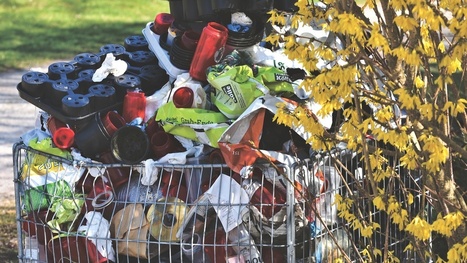Extra food packages, more cleaning products, and the return of flimsy single-use plastic bags are hallmarks of the pandemic, and they’re piling up in our wastebaskets. While a fair amount of the things we’re tossing are recyclable, workers at recycling plants are being forced to adapt to physical distancing. That’s slowed down an already struggling system.
Research and publish the best content.
Get Started for FREE
Sign up with Facebook Sign up with X
I don't have a Facebook or a X account
Already have an account: Login
How might we keep the lights on, water flowing, and natural world vaguely intact? It starts with grabbing innovative ideas/examples to help kick down our limits and inspire a more sustainable world. We implement with rigorous science backed by hard data.
Curated by
PIRatE Lab
 Your new post is loading... Your new post is loading...
 Your new post is loading... Your new post is loading...
|
|











